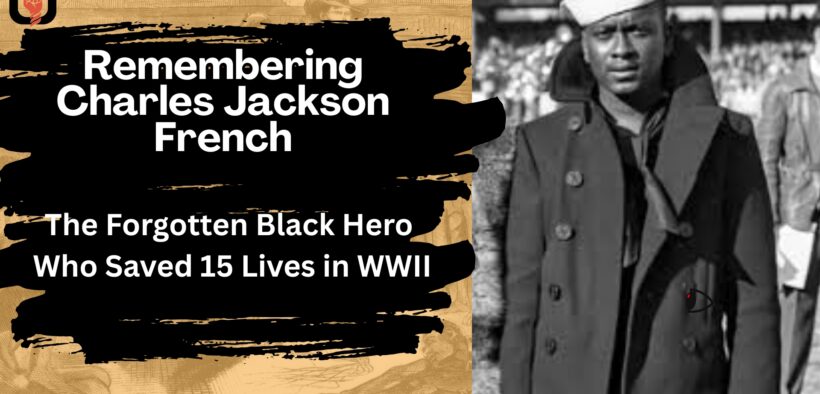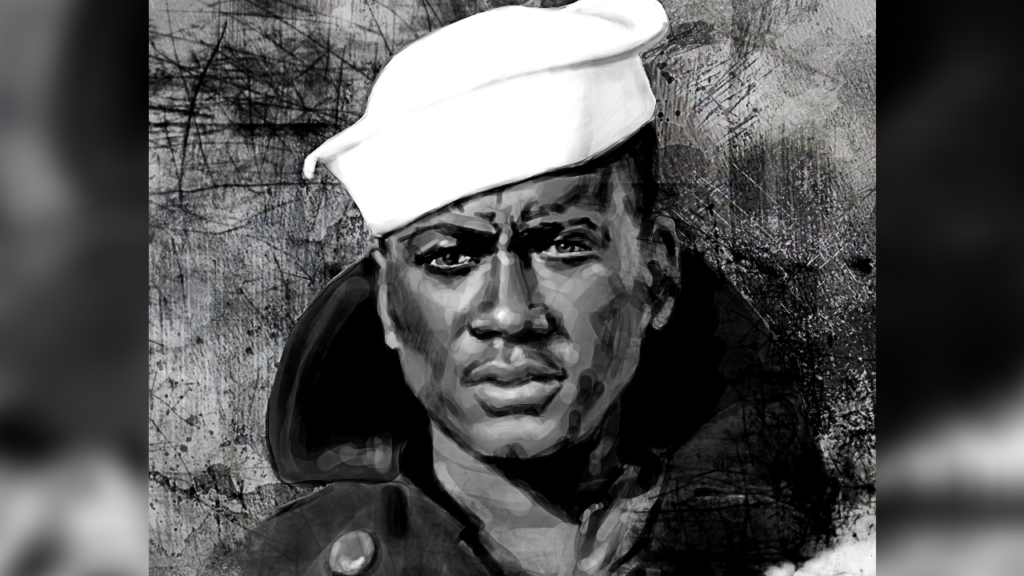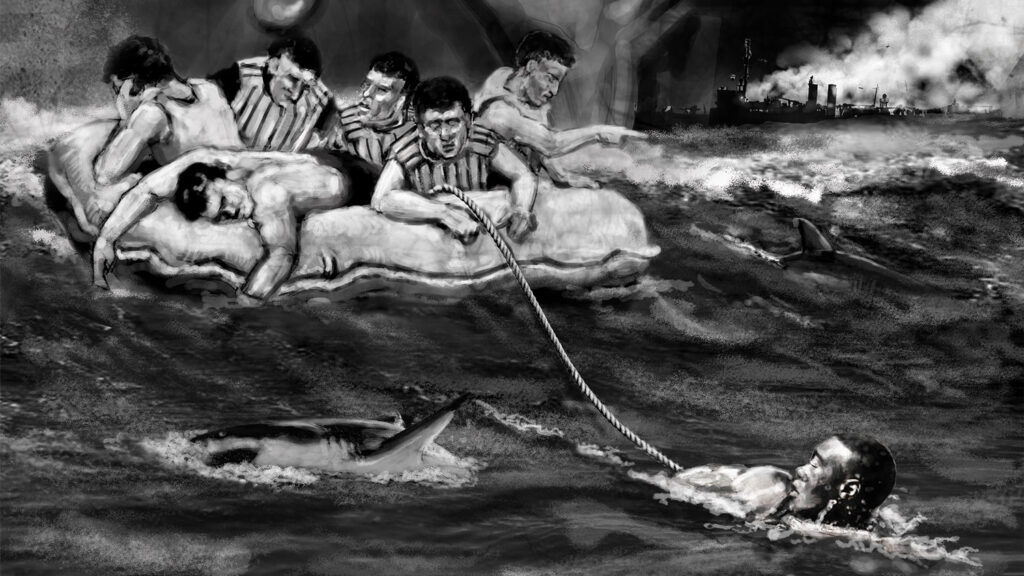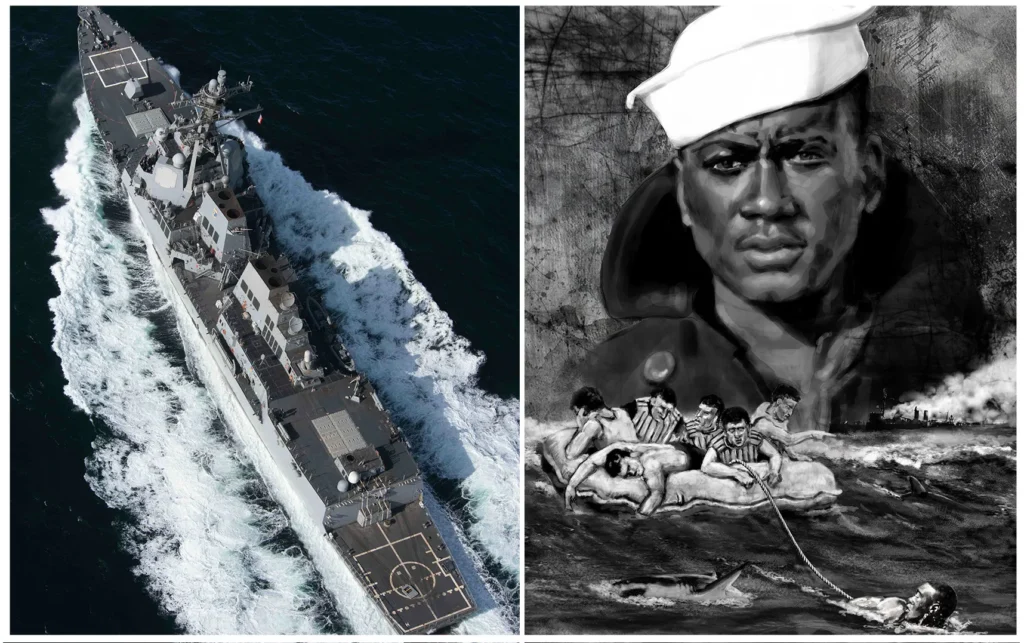Remembering Charles Jackson French: The Forgotten Black Hero Who Saved 15 Lives in WWII
Share

In the dark waters of the South Pacific during World War II, a 22-year-old Black sailor named Charles Jackson French performed an act of courage that should have made history books, but instead, was nearly forgotten. After the USS Gregory was sunk by Japanese destroyers off the coast of Guadalcanal in 1942, French tied a rope around his waist, grabbed hold of a raft carrying fifteen wounded white sailors, and swam for six to eight hours through shark-infested waters until they reached safety.

He wasn’t following orders. He wasn’t trained for heroics. He simply refused to let his shipmates die.
While the surviving sailors were rescued the next morning, French’s bravery was largely ignored by the Navy at the time. He was recommended for the Navy Cross, but instead received only a commendation letter, a quiet bureaucratic gesture that failed to capture the magnitude of what he did. The racial climate of 1940s America, especially within the armed forces, made it nearly impossible for Black servicemen to be recognized on the same level as their white counterparts, no matter how heroic their deeds.

French’s story stood in stark contrast to the ideals the U.S. claimed to fight for overseas, freedom, equality, and justice. While the military was still segregated, Black men like him served bravely in every branch, often facing discrimination from the very country they risked their lives to defend. Yet French didn’t let that stop him. His courage wasn’t motivated by recognition; it was rooted in duty, humanity, and sheer strength of will.
For decades, his name faded into obscurity, mentioned occasionally in veterans’ stories but never enshrined in the national memory. Only recently has his heroism begun to receive the acknowledgment it deserves. In 2022, eighty years after that fateful night, the U.S. Navy posthumously honored Charles Jackson French, awarding him the Navy and Marine Corps Medal, one of the service’s highest non-combat distinctions.

That recognition, while long overdue, marked a powerful correction of history. It affirmed what his shipmates had always known: that a young Black man, in one of the darkest moments of war, carried not just their bodies, but the moral weight of a divided nation across dangerous waters.
Charles Jackson French’s story isn’t just about heroism, it’s about Black excellence in its purest form. His life reminds us that true courage often goes unseen, especially when racism clouds the nation’s vision. But history has a way of circling back to the truth, and today, his legacy shines brighter than ever.






